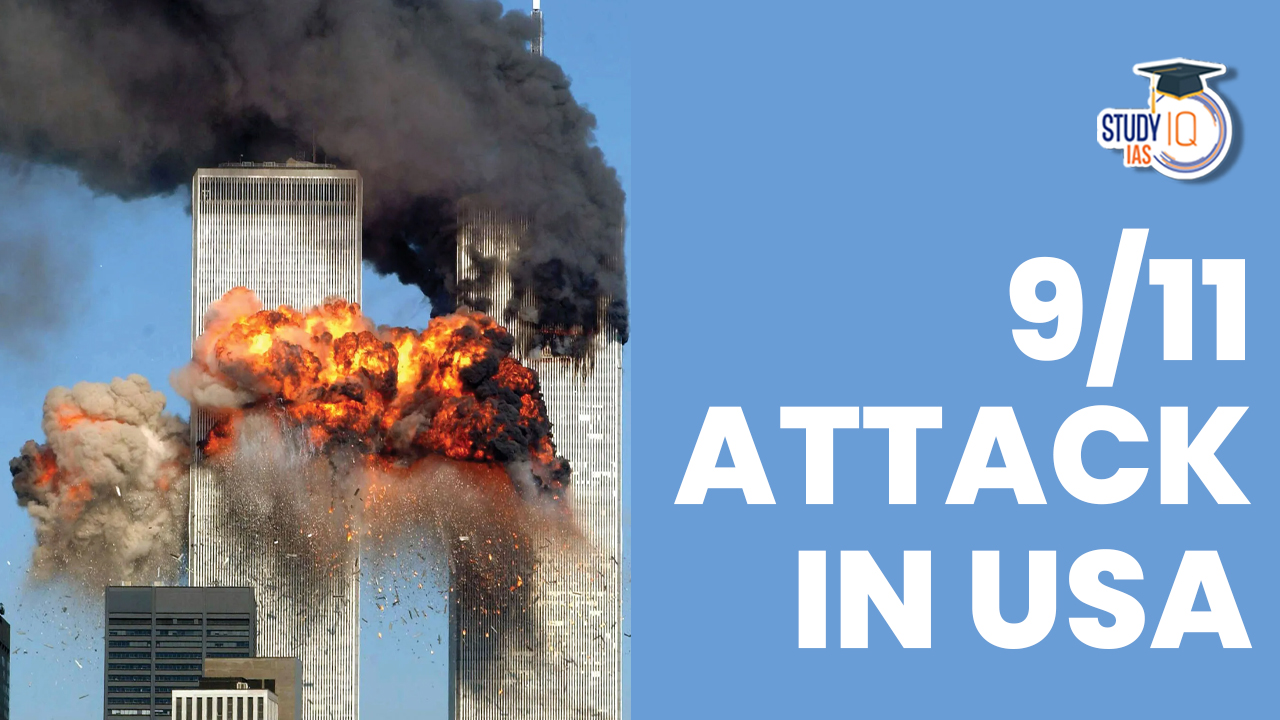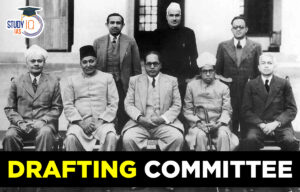Table of Contents
The 9/11 attacks in the USA remain one of the most defining moments in modern history. On September 11, 2001, the United States faced the deadliest terrorist attack on its soil, carried out by the extremist group al-Qaeda. Nearly 3,000 people lost their lives, and the event not only reshaped U.S. domestic and foreign policy but also changed global geopolitics, security frameworks, and international relations forever.
In this article, we will cover the locations of the attacks, the timeline of events, and their far-reaching impact on the world.
America Commemorates 24th Anniversary of 9/11 Attacks
The United States today marked the 24th anniversary of the 9/11 attacks, remembering nearly 3,000 lives lost in the deadliest terrorist assault on American soil. On September 11, 2001, four hijacked planes struck the World Trade Center, the Pentagon, and a field in Shanksville, Pennsylvania, forever altering U.S. history. The tragedy claimed victims from 77 nations and 441 first responders. Commemorations include the reading of names at the 9/11 Memorial in New York and moments of silence at the times of impact. The day remains a solemn reminder of resilience, sacrifice, and global resolve against terrorism.
9/11 Attacks World Trade Center
The September 11th or 9/11 attacks, also known as the 9/11 attacks in the USA, were a series of planned terrorist assaults carried out by the radical organisation al-Qaeda on the morning of September 11, 2001, in the United States. These assaults continue to rank among the most important and tragic occasions in modern times.
9/11 Attacks in USA Locations
| Location | Details |
| World Trade Center | American Airlines Flight 11 and United Airlines Flight 175 were both commercial aircraft that were hijacked and crashed into the North and South Towers of the World Trade Centre in New York City. Eventually, as a result of the crash and subsequent fires, both towers fell. |
| Pentagon | American Airlines Flight 77 was hijacked and destroyed at the Pentagon in Arlington, Virginia, the seat of the US Department of Defence. |
| Flight 93 | Another hijacked airliner, United Airlines Flight 93, was brought down in Shanksville, Pennsylvania, as passengers tried to retake control from the hijackers. Either the White House or the U.S. Capitol was thought to be the intended target. |
22nd Anniversary of 9/11 Terrorist Attacks
The 9/11 terrorist attacks, the deadliest such incident on American soil, which claimed the lives of over 3,000 people, are commemorated on September 11 for the 22nd time. Using hijacked aircraft, a group of 19 terrorists affiliated with the Islamic extremist organisation al-Qaida attacked New York and Washington, D.C. After the Twin Towers at the World Trade Centre fell, more than 400 emergency personnel perished.
Every year, the country remembers the lives lost at Ground Zero, the 184 victims of the Pentagon attack, and the victims of the plane disaster in Shanksville, Pennsylvania, when passengers managed to outrun terrorists but perished in the process.
9/11 Attacks Timeline
- 8:46 AM: American Airlines Flight 11 crashed into the North Tower of the World Trade Center in New York City.
- 9:03 AM: United Airlines Flight 175 crashed into the South Tower of the World Trade Center.
- 9:37 AM: American Airlines Flight 77 crashed into the Pentagon in Arlington, Virginia.
- 10:03 AM: United Airlines Flight 93 crashed into a field in Pennsylvania after passengers attempted to regain control of the plane from the hijackers.
How Many Died in 9/11 Attack?
2,977 people perished as a result of the attacks, including those who were on board the planes, those who were first responders, and civilians who were in the buildings and the surrounding areas.
Impact of WTC 9/11 Attacks
The 9/11 attacks had a significant impact on both the United States and the rest of the world. They caused a substantial change in American foreign policy, which included the start of the War on Terror and the deployment of troops to Afghanistan and Iraq. To stop further attacks, the American government put in place a number of security measures, such as creating the Department of Homeland Security and passing the USA PATRIOT Act.
The attacks had a significant psychological and emotional impact on the American people, resulting in a time of sorrow. Significant modifications were made to security at airports and other public locations, including more stringent traveller screening processes.
America Responds to 9/11 Attacks
Immediate Response: In the immediate aftermath of the attacks, first responders, including firefighters, police officers, and medical personnel, rushed to the scenes to rescue survivors and provide medical assistance. This response demonstrated the resilience and unity of the American people.
War on Terror: The U.S. government, under President George W. Bush, declared a “War on Terror.” This involved military action in Afghanistan, where the Taliban regime harbored Al-Qaeda leaders, including Osama bin Laden, who was the mastermind behind the 9/11 attacks. The military operation was aimed at removing the Taliban from power and dismantling Al-Qaeda’s infrastructure.
Patriot Act: In October 2001, the USA PATRIOT Act (Uniting and Strengthening America by Providing Appropriate Tools Required to Intercept and Obstruct Terrorism Act) was signed into law. This controversial legislation expanded the government’s surveillance and intelligence-gathering powers in order to combat terrorism. Critics argued that it infringed on civil liberties.
Homeland Security: The Department of Homeland Security (DHS) was established in November 2002 to coordinate domestic security efforts and enhance the country’s ability to prevent and respond to terrorist threats. It brought together various agencies responsible for immigration, transportation security, and emergency response.
International Cooperation: The U.S. worked closely with its allies and international partners to combat terrorism globally. This included financial sanctions, intelligence sharing, and diplomatic efforts to build a global coalition against terrorism.
Enhanced Airport Security: Significant changes were made to airport security procedures, including the creation of the Transportation Security Administration (TSA) to screen passengers and luggage, as well as the introduction of more rigorous security measures.
Creation of the 9/11 Commission: In 2002, the U.S. Congress established the 9/11 Commission to investigate the events leading up to the attacks and make recommendations to prevent future terrorist attacks. The commission’s findings and recommendations led to various reforms in intelligence and national security agencies.
Cultural Impact: The attacks had a profound impact on American culture and society, leading to increased patriotism and solidarity among the American people. It also had an enduring influence on the nation’s foreign policy and security posture.
Ongoing Counterterrorism Efforts: The fight against terrorism continued over the years, with the U.S. government conducting counterterrorism operations in various parts of the world. Osama bin Laden was eventually located and killed by U.S. Navy SEALs in Pakistan in 2011.
The response to the 9/11 attacks had far-reaching consequences for American domestic and foreign policy, including ongoing debates about civil liberties, government surveillance, and the use of military force in the name of national security. It also shaped the country’s approach to counterterrorism for years to come.
How the 9/11 Attack changed the world?
The September 11, 2001, terrorist attacks profoundly transformed the world in multiple ways. They ushered in an era of heightened global security measures, redefining the way people travel and how governments protect their citizens. The “War on Terror” initiated by the United States led to military interventions in Afghanistan and beyond, reshaping U.S. foreign policy and global geopolitics. While international cooperation against terrorism increased, the threat itself evolved with the emergence of new extremist groups. The aftermath of 9/11 also prompted debates about civil liberties and government surveillance, influencing legislation and public discourse. Geopolitical alliances shifted, immigration policies tightened, and economies were affected. Culturally and psychologically, the attacks left an indelible mark, fostering resilience alongside vulnerability. The legacy of 9/11 endures, influencing security strategies, foreign policy decisions, and global perceptions, making it one of the defining events of the 21st century.


 List of Vice Presidents of India 1952-20...
List of Vice Presidents of India 1952-20...
 Drafting Committee of Indian Constitutio...
Drafting Committee of Indian Constitutio...
 Consolidated Fund of India, Meaning and ...
Consolidated Fund of India, Meaning and ...

























